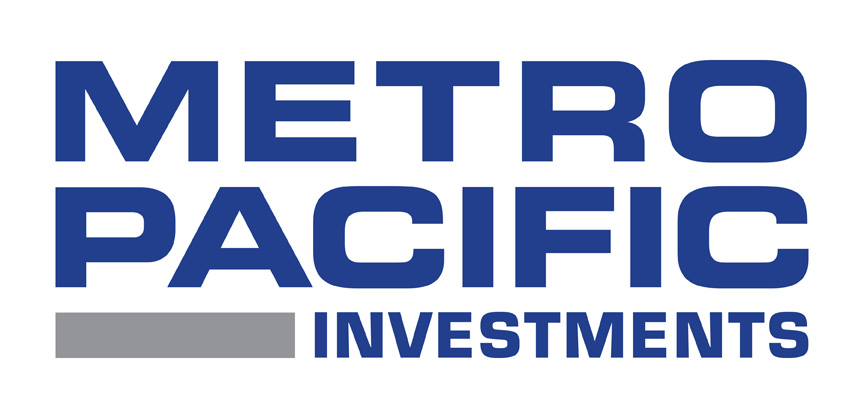MPIC net income surges nearly four times to P7B

Company officials say banks keen on REIT for tollways, hospitals
By Arjay L. Balinbin, Senior Reporter
METRO Pacific Investments Corp. (MPIC) on Wednesday reported a 272.06% increase in its first-quarter attributable net income, owing to the sale of its stakes in a power producer and a toll road business in Thailand, as well as the recently signed tax incentives law.
MPIC’s attributable net income for the first quarter reached P7.03 billion, up from P1.89 billion in the same period last year, the company said in a statement to the stock exchange.
The company said it benefited from the gain recognized from the sale of Global Business Power Corp. and Thailand’s Don Muang Tollway Public Co. Ltd.
“These recent asset sales underscores MPIC’s commitment to optimizing its portfolio and realizing value for its stakeholders,” it said.
However, the company’s first-quarter core net income fell 26% to P2.5 billion, blaming the decline on the economic contraction caused by the public health crisis.
The pandemic, MPIC said, has resulted in “reduced toll road traffic, light rail services, and commercial and industrial demand for water and power.”
The recently signed Republic Act No. 11534 or the Corporate Recovery and Tax Incentives (CREATE) law that lowered the income tax rates from 30% to 25% also aided the company’s performance in the first quarter, MPIC noted.
“This law eases the company’s future tax liabilities and consequently allows reallocation of resources to further improve operational efficiencies,” it added.
MPIC Chief Financial Officer and Chief Sustainability Officer June Cheryl A. Cabal-Revilla said at an online briefing: “In the first quarter, we actually recognized some positive impact, with the tax rates lowered from 30% to 25%, and that’s about P500 million for the group.”
The company’s operating revenues declined 7.16% to P10.63 billion in the first quarter from P11.45 billion in the same period in the previous year.
MPIC’s power business, which consists of contributions from Manila Electric Co. (Meralco) and Global Business Power, accounted for P2.5 billion or 66% of the total contribution from operations.
Meralco’s core net income fell 11% to P5.1 billion in the first quarter. MPIC said the decrease was “driven by lower energy sales, lower interest income on cash investments, and higher operating expenses.”
Global Business Power’s core net income increased 19% to P522 million because of the CREATE law, it noted.
MPIC’s toll road business saw its core net income fall 15% to P788 million. The decline was due to the “decrease in traffic volumes, higher interest expense and amortization from expanded capital expenditure initiatives in the construction of new roads, and the reduction in contribution from international toll roads owing to the divestment of Don Muang Tollways in Thailand in February 2021.”
“This was partly offset by the positive impact of the CREATE law,” MPIC added.
MPIC said toll roads contributed P800 million or 21% of the total contribution from operations.
The water segment, which consists of contributions from Maynilad Water Services, Inc. and Metropac Water Investments Corp., contributed P500 million or 14% of the total.
Maynilad saw its first-quarter core net income fall 24% to P1.2 billion.
“Amortization and depreciation expenses increased due to substantial investments in the Putatan Water Treatment Plant 2, in the Pasay and Parañaque sewage treatment plants, and continuing upgrades to facilities, partly offset by lower income tax resulting from the CREATE law,” MPIC noted.
The company’s light rail business through the Light Rail Manila Corp. reported a core net loss of P104 million, mainly due to the reductions in capacity and average daily ridership.
MPIC’s hospitals under the Metro Pacific Hospital Holdings, Inc. saw a 6% increase in their consolidated core net income to P285 million.
The increase was “driven by the growth in revenues, further augmented by the positive impact of the tax reduction from CREATE law,” MPIC said.
According to Ms. Cabal-Revilla, MPIC is “poised to hit P12 billion in core income” at the yearend.
REIT AS FUNDING OPTION
MPIC also said on Wednesday it is studying the possibility of pioneering real estate investment trust (REIT) for infrastructure.
“We have been approached by several banks to consider REITs, especially for the hospital business. But we are now the minority shareholder in the hospitals, so it’s really up to the majority shareholders to decide,” MPIC President and Chief Executive Officer Jose Ma. K. Lim said.
Metro Pacific Hospital Holdings President and Chief Executive Officer Augusto P. Palisoc, Jr. said the matter is a “possibility.”
“I think the REIT is a possibility for the hospital group, but we will have to study it very carefully. At the moment, we are very busy with the COVID surge and the vaccination programs that are coming our way,” he said.
For her part, Ms. Cabal-Revilla said: “I think our toll roads group has also been approached to do REITs, but I think they are looking at this from a timing perspective.”
“We’ve been approached… One of our objectives is also to do a public listing eventually. But right now, our portfolio is not yet balanced,” Metro Pacific Tollways Corp. President and Chief Executive Officer Rodrigo E. Franco noted.
REITs require a company to have a recurring income portfolio that investors may put their money into through the purchase of public shares. The new rules of the Securities and Exchange Commission require a minimum public float of 33% and a paid-up capital of P300 million for REITs.
MPIC shares closed 2.44% lower at P4 apiece on Wednesday.
MPIC is one of three key Philippine units of First Pacific, the others being Philex Mining Corp. and PLDT, Inc. Hastings Holdings, Inc., a unit of PLDT Beneficial Trust Fund subsidiary MediaQuest Holdings, Inc., has a majority stake in BusinessWorld through the Philippine Star Group, which it controls.



